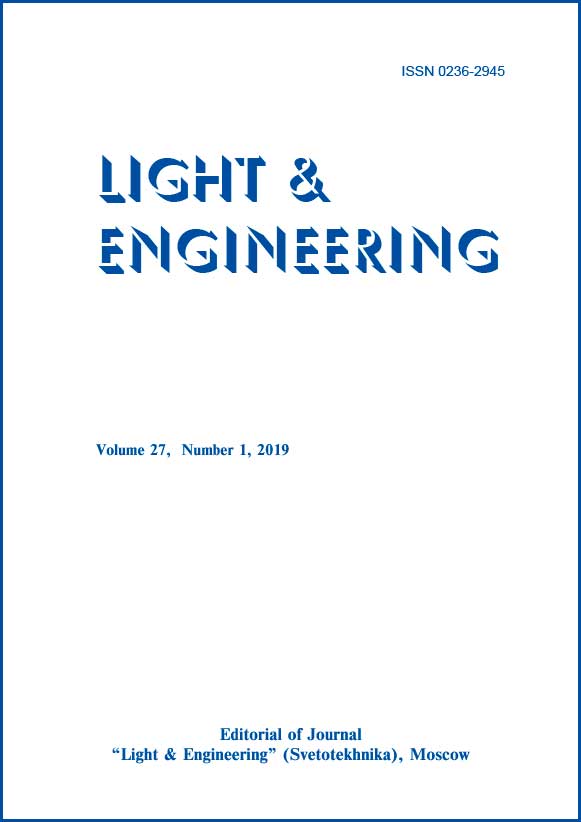Content

In the magazine
This issue of the Light and Engineering Journal is exploring a wide variety of light application instances, concerning both theoretical, practical and legal fields. Various topics were addressed – questions and approaches on both Maxwell Garnett Approximation and Bruggeman approximation are discussed here, as well as the contemporary results of an array of multinational studies concerning Non-Line of Sight communication – the way of transferring information depending on a medium. Another article introduces a new method – as a substitution for the bidirectional scattering distribution function – for precise reconstruction of the scattering properties of a rough surface, in this case dielectric-air interface. There is also a discussion on a combined emergency lighting system, designed to detect fires at the early stage and to communicate with the dwellers of the structure by sending alarm messages through a mobile network. Some of the other topics include: a thorough look at lifetime cost effectiveness of LED and other luminaries – simulations of the life cycle cost analysis were used to acquire precise results; the features of LED-based street lighting powered by solar energy, concentrating upon design considerations and the operating principle in detail; the features of indoor light that affect our mental state, and aims at reducing the harmful effect of it. As it was mentioned above, the legal aspects of energy regulation were vastly explored in this issue – and the need to propel the development of the associated laws that quickly become outdated due to the rapid changes in the field. This section addresses energy efficiency in the aspect of State public interest, its influence on a budget, as well as the legal aspects of different non-conventional ways to attract investments to the energy-saving technologies and the alternative ways of raising funds – Initial Coin Offering. A thorough investigation is given on the energy supply problems for state-owned enterprises, through which its importance for the state economy is shown, thus denoting the special need to assess the related risks, costs and features of this field. Why there is a necessity of energy law stabilization and improving of legislations in the area? Where is the situation going within the Russian economic scenario? These questions are addressed here as well. Also the present violations in the energy related area – the consequence of the importance of this field in our life – received a well-deserved attention. The authors determine some loopholes in laws in attempts to ameliorate the state of things. As a conclusion the last work determines whether the contemporary electric energy market needs to shift its competitive situation and open up to the private investments to encourage business involvement, as well as analyzes the legal state of this field in Russia.
Recommended articles
Light & Engineering 30 (№4. 2022). Paper version
Light & Engineering 29 (№5(1). 2021). Paper version
Translucent Skylights from Falconnier Glass Blocks L&E, Vol.31, No.2, 2023
